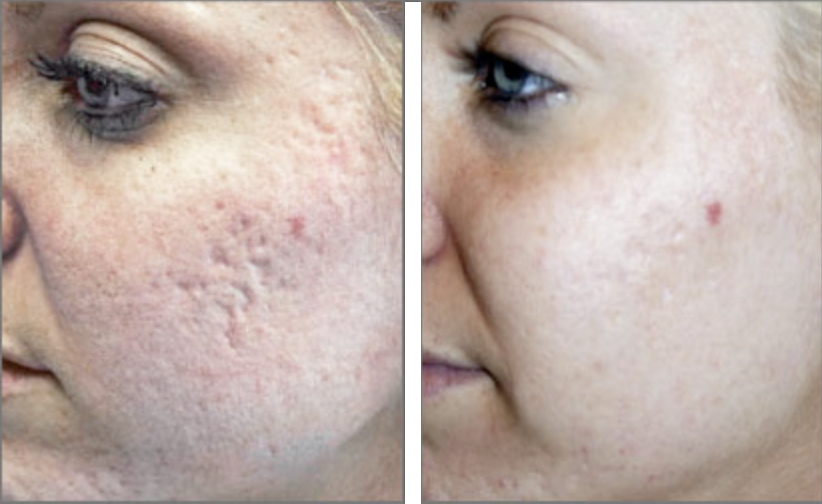eMatrix Treatment - Abu Dhabi - Dubai
eMatrix treatment is a non-invasive skin rejuvenation procedure that uses radiofrequency (RF) energy to stimulate collagen production and improve the overall texture and appearance of the skin. It is commonly used to address various skin concerns, such as fine lines and wrinkles, acne scars, sun damage, and uneven skin tone.
During the eMatrix treatment, a handheld device with a grid of tiny pins is passed over the skin, delivering controlled RF energy into the deeper layers of the skin. This energy creates a controlled thermal injury, promoting collagen remodeling and stimulating the skin's natural healing response. The treatment is usually performed by a trained healthcare professional, such as a dermatologist or a licensed aesthetician.
One of the advantages of eMatrix treatment is that it targets the deeper layers of the skin while leaving the outermost layer, the epidermis, largely intact. This allows for quicker healing and minimal downtime compared to more aggressive laser treatments.
The eMatrix procedure typically requires a series of treatments, spaced a few weeks apart, to achieve optimal results. Some individuals may see improvements after just one treatment, but for more significant changes, multiple sessions are often recommended. The exact number of treatments needed depends on the individual's specific skin condition and desired outcome.
After the treatment, it is common to experience some redness, swelling, and mild discomfort, similar to a sunburn. These side effects usually subside within a few days. It is important to follow the post-treatment instructions provided by the healthcare professional, which may include using gentle skincare products, avoiding sun exposure, and applying sunscreen.
As with any cosmetic procedure, there are potential risks and considerations to discuss with a healthcare professional before undergoing eMatrix treatment. It may not be suitable for individuals with certain medical conditions, such as active infections, autoimmune disorders, or a history of keloid scarring. Pregnant women are generally advised to avoid this treatment.
It's worth noting that medical technologies and treatment approaches can evolve over time, so it's a good idea to consult with a qualified healthcare professional or dermatologist who can provide the most up-to-date information and determine if eMatrix treatment is appropriate for your specific needs

